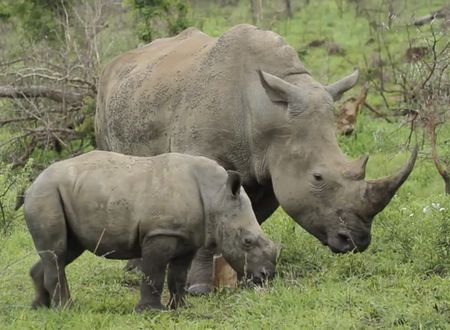One day, the Chinese monk Fazang (Fa-Tsang) was delivering a talk on the Avatamsaka Sutra (lit. The Flower Ornament Sutra) in the court of Empress Wu (624 – 705 CE). He explained a universe with many dimensions of consciousnesses, many realms of existence that were not just interconnected but mutually contained each other.
“I get it, but I don’t get it,” the empress said. “I understand interconnectedness but how can two things contain each other?”
It was well known that the law of interconnectedness was not only the primary but just about the only insight Fazang used to make sense of everything around him. He was an eloquent orator and was engaged by Empress Wu to do translations of many sutras. Impressed by his versatility, intelligence and political acumen too, she had grown increasingly fond of him.
He tried explaining how interconnectedness worked but the empress remained unimpressed. “Can you demonstrate?” she asked to which Fazang replied that he needed some resources and one week’s time.
Seven days later, in the evening, he invited Empress Wu to a large hall adorned with numerous mirrors. The soft rays of twilight filtered through large shears and fell on many mirrors making it an unearthly sight. Right in the middle of that hall was a huge chandelier that sported an unlit candle.
“It’s very calming and surreal to be here,” the empress said.
“With Her Majesty’s permission,” Fazang said, “I’d like to light that candle as soon as the sun goes down completely.”
Dusk turned to night, the hall turned dark, the only source of light being the guards standing outside with spears and flambeaus. Fazang had the candle lit and asked for the door to be closed.
“See, Her Majesty,” he said taking the empress around the mirrors, “one lighting of the candle and the entire hall is illuminated. The light of the flame is bouncing off the mirrors multiplying the effect of that one candle. You see a flame in every mirror. The source flame is only one but here every mirror is showing it. Put out one and all go out.”
“I understand,” the empress replied. Twinkling lights from the multitude of reflection of flames could be seen in her eyes, jewellery and in the goldwork on her dress. “But, how does that demonstrate things containing each other?”
“Aha!” Fazang exclaimed. “Please walk with me and observe carefully any mirror.”
“What about it?” she said standing in front of one.
“Not only does each mirror carry a reflection of the source candle but also the flame from every other mirror here. Each mirror has infinite flames from all the others. This is the law of interconnectedness.”
So it is with us and everyone around us; we are karmically interdependent and interconnected. We carry within ourselves the untold and immeasurable glory of the universe, the cosmic consciousness and the eternal impressions of collective consciousness. What you do, say and think has an impact on others and vice-versa too; it creates karma. That’s what I mean by collective consciousness. Ever changing and transforming. Buddha called this world anitya and anataman; these words encapsulate the whole gamut of his teachings. That, the world is impermanent (anitya) and ever-changing (anataman: devoid of any inherent self).
Our clinging (moha) to our beliefs is nothing but sheer ignorance (avidya), a sign of an unawakened mind, a slumbering consciousness. Look at the level of violence, intolerance and unrest in the world today due to people’s attachment to their way of life. For that matter, attachment to anything, although natural, stems from ignorance because the very nature of attachment is the quest for permanence. My beauty, my wealth, my family, youth, status, nothing should fade. Attachment hurts us badly whenever we are forced to loosen our grip on things we wish to retain.
What’s worse is that such attachment gives birth to indulgence (asakti) and with indulgent behavior, we sort of develop a self-amorous mindset, we get self-absorbed, even self-obsessed. We fall in love with ourselves not in a manner that boosts our self-esteem and wellbeing but in a way that we constantly seek external approval to feel worthy of anything.
If the story ended here, it would not be so bad still. The trouble is that attachment leading to indulgence creates the most destructive of all emotions — greed (trishna). The Sanskrit word trishna is an incredibly profound word, for it means much more than greed. Just greed is lobha in Sanskrit, but trishna is that insatiable desire, that futile search for permanence in what is inherently impermanent.
It’s all very simple then: with greed, we remain indulgent and attached which in turn keeps the real flame cloaked under the blanket of ignorance and with ignorance, we continue to cling to whatever we can and as a result our suffering is endless.
A husband called out to his wife from the washroom, “Honey, can you hand me a towel?”
“A towel!” the wife roared from the kitchen. “Should I prepare this bloody breakfast for you or give you a towel?”
He stood there dripping under the shower that was now turned off.
“First, you always forget the towel and then you leave it wet on the bed! I have to pick up your dirty laundry too,” the wife came to the washroom and continued. “Let alone cleaning the washroom, you leave your shaving gel opened, your razor carelessly facing the top. And then you come out all wet and roam around the house like a bull out of the pond. The other day our housemaid slipped on the wet floor and did not come for three days. I had to do all the work by myself! Oh God! Why this man!?”
Wonder what my mistake was, the husband thought, to ask for the towel or her hand in marriage?
Maybe the real mistake was his irresponsible behavior. Or, maybe the wife could be more patient or perhaps they couldn’t be bothered. Either way, they’ll gradually grow out of love and one day wonder where it all went wrong. Care not about others and the same vibes bounce back at you. A sense of connection fuels interconnectedness.
Have you ever been on a long-awaited vacation with your loved ones, to say a beautiful hill station? There, due to any small misunderstanding, let’s say you had an argument or you got some disturbing news from work or whatever, do you remember how you felt afterwards? The beauty of the mountains or the whiteness of the snow, the singing birds or the gentle brooks, all lose their lustre instantly. Bereft of any joy inside or outside, you are unable to see the beauty. Everything’s still there but it no longer feels that way.
That’s what ignorance does to our consciousness. It’s all there, we just can’t see it.
To benefit from the law of interconnectedness, we can’t afford to cover the mirror of our consciousness with trishna and svartha, self-centeredness. They act as a blindfold and prevent us from seeing the flame within the flame, obstructing our vision of seeing the beautiful hall, the sunset, the twilight, that candle in the chandelier. All of that depends on the mirrors being clean and your vision clear.
It is one of the reasons why some people’s struggles never abate, they remain on edge for the most part of their lives. Attachments do that to us; they create noise and turmoil in our heads.
I know some of you may be thinking, as I’m frequently asked, should we not have attachment(s) then?
It’s not my prerogative to tell you what you can or can’t do in your life or what you should or shouldn’t have. I don’t believe in preaching. Period. All I am saying is that whatever I am attached to will eventually be the cause of my suffering (dukha). Without fail. Yes, attachment also motivates us, gives us pleasure, it even strengthens us in a way, but it also makes us oblivious to the truth and the beauty that surrounds us.
The law of interconnectedness is there for everyone, but to have it work for you, one must know how to put the wheels in motion. Someone may have a sum of ten million dollars in their bank account, but if they don’t know how to withdraw or use that money, they can’t spend or invest it.
And, how to “put the wheels in motion”, you ask? Be kind. Make a difference to someone’s life. Anytime you are hurt, ask yourself, could it be that I’m hurt because I can’t see past my viewpoint, maybe because my mirror is covered and I am not seeing the flame that’s lit up my whole world?
Your inner voice will take over and guide you then to the shores of serenity and love, rekindling a sense of connection with the universe with the cosmic consciousness.
Nothing connects like a kind gesture. And, nothing connects forever. Cosmic design, just doesn’t cater for it.
As promised in my last post, I’ll be visiting the UK in the third week of June.
Join me on a weekend meditation camp in London. 22-23 June. Details here.
Peace.
Swami
Course
Art of Meditation
Free yourself from suffering and live life to the fullest. Learn the yogic technique of meditation in 4 days (and master it over a lifetime)
What is cosmic consciousness? Below are a few insights on cosmic consciousness and how everything is interconnected.
What is cosmic consciousness and how does Karma play a role?
We are karmically interdependent and interconnected. We carry within ourselves the untold and immeasurable glory of the universe and the eternal impressions of collective cosmic consciousness. What you do, say, and think has an impact on others and vice-versa too; it creates karma. That’s what I mean by collective consciousness.
How to attain Cosmic Consciousness through meditation?
Whenever you think about samadhi or experiencing bliss through meditation, I want you to close your eyes and think about Einstein, Edison, Newton and the likes. Just reflect on how many hours they must have devoted to their research to produce groundbreaking theories that they did.
Edison practically used to sleep in his lab; he would not come out for days at a stretch. Or, think of a professional pianist. A concert pianist invests an average of 10,000 hours in practice and training before reaching that expert level where playing becomes effortless and natural. Meditation is no different. At least, take the first step. Here’s a ray of light for you though: past the first four states of awareness, you don’t necessarily need to sit down and meditate. You could simply maintain meditative awareness round the clock.
Patanjali, Vyasa and other sages, while propounding the path of meditation, listed nine states of awareness. In a way, these states represent spiritual evolution of an aspirant.
Read more here.
How to tap into cosmic consciousness?
Earlier in January this year, I wrote that I would unearth a great secret for you. I mentioned becoming one with nature so you may expand your consciousness to an extraordinary scale. So that, each one of us, like a drop merging in the ocean may become as vast and powerful as the ocean itself. One drop doesn’t make a sea but every drop is required or there’ll be no sea. Similarly, to gain the immensity of scale necessary to attract the universe, we have to tap into the collective consciousness. Before I sound any more complicated, allow me to explain the basis of my theory in three parts:
Read more here.
What is The Butterfly effect and how is it connected with the cosmic consciousness?
We are the universe, the universe and everything in it is made from what it contains — which invariably includes you and I.
The fluttering of a butterfly’s wings, several weeks earlier, can indeed influence the formation and path of a tornado thousands of miles away. When the microscopic amount of air displaced by a flapping butterfly was factored into a weather forecasting model by Edward Lorenz in 1961, it showed a completely different outcome. In other words, the Butterfly Effect is a finer and more sophisticated explanation of the law of karma. That, not only what we do impacts us, it does everyone else too.
Read more here.
What is the difference between cosmic consciousness and consciousness?
There’s a term in Japanese and they say, like unique words in every language I suppose, that it can’t be translated. Wab-sabi. It’s not just a word but a philosophy, a way of life. Loosely interpreted, it means to find beauty in the imperfections of life and gracefully flowing with the natural cycle of evolving and ageing.
Read more here.
What role does the cosmic consciousness play when it comes to making our dreams come true? How does the law of attraction work?
When you don’t believe in something, the Universe doesn’t believe in it either. If you believe in your own goals, dreams, desires and hopes, the Universe will too. Vedic scriptures persuasively state and logically prove that we are an exact replica of the Universe. We are the microcosm and out there is the macrocosm. Anything you wish to materialize outside, you must first learn to manifest it within — with complete conviction and sincerity.
If you are willing to be patient, persistent, and positive, you can accomplish pretty much anything.
Read more here.
How you can use Mahamudra meditation to become one with cosmic consciousness. If yes, what are the stages to attaining bliss?
The answer to this question is depicted beautifully with three key artifacts, namely, a monk, an elephant and a monkey.
Read more here about what is their roles in attaining bliss and aligning with cosmic consciousness.
What happens when we work on expanding our consciousness to align with cosmic consciousness?
I once read a quote: “You’ll worry less about what people think about you when you realize how seldom they do.”
If, based on your actions, you see yourself a certain way and believe that with utmost conviction, the world will start seeing you that way too (if at all that matters to you). Because everything is interconnected and interdependent. Absolutely everything. Whether you choose to be the sun, a moon, or just any star in your own galaxy, it’s your personal choice. The greater your magnitude, the less affected you are by the smaller stars. How you see yourself matters a great deal more than how others see you because your happiness and peace is dependent on your own honest view about you.
Read more here.
A GOOD STORY
There were four members in a household. Everybody, Somebody, Anybody and Nobody. A bill was overdue. Everybody thought Somebody would do it. Anybody could have done it but Nobody did it.
Don't leave empty-handed, consider contributing.It's a good thing to do today.









Comments & Discussion
11 COMMENTS
Please login to read members' comments and participate in the discussion.